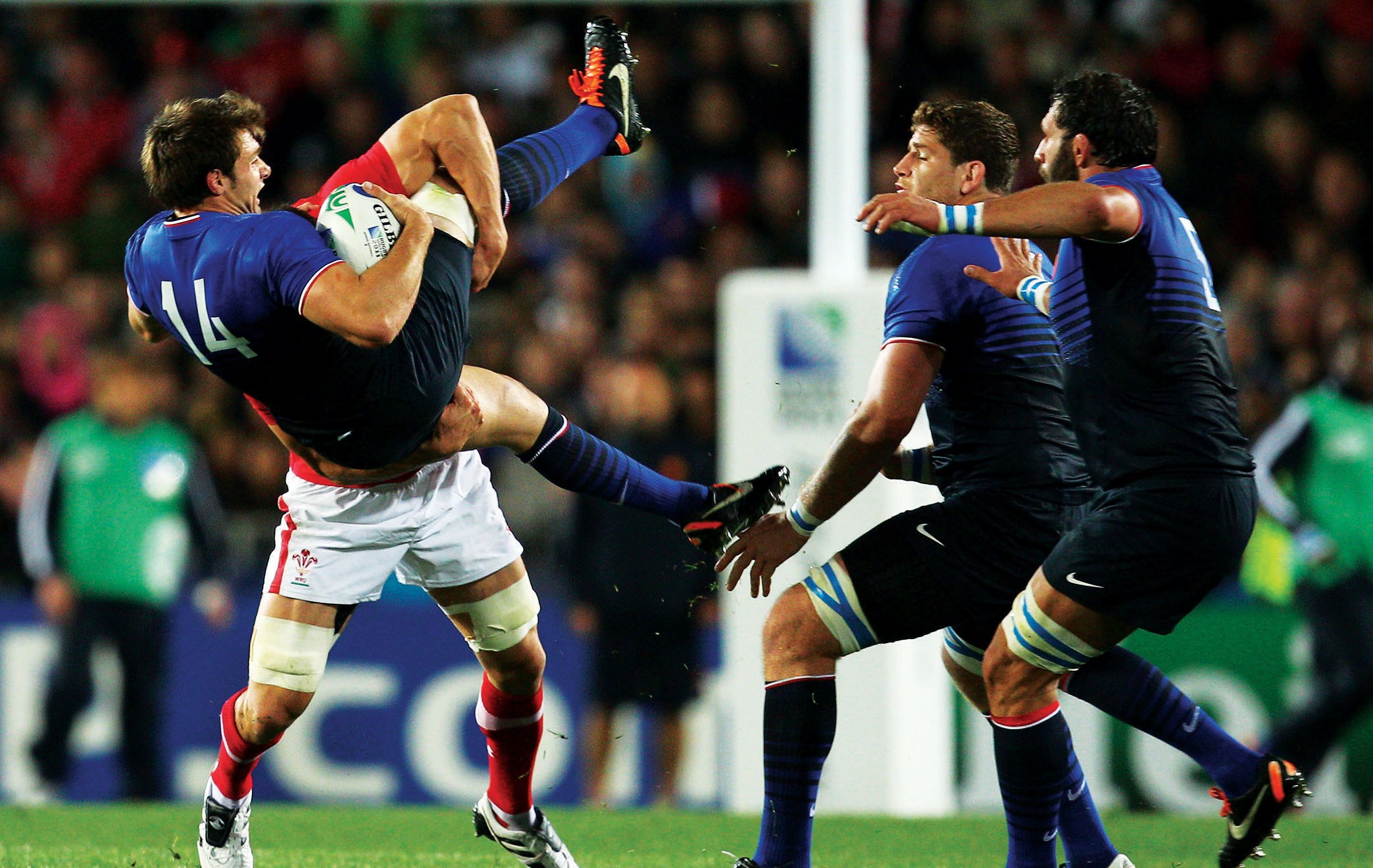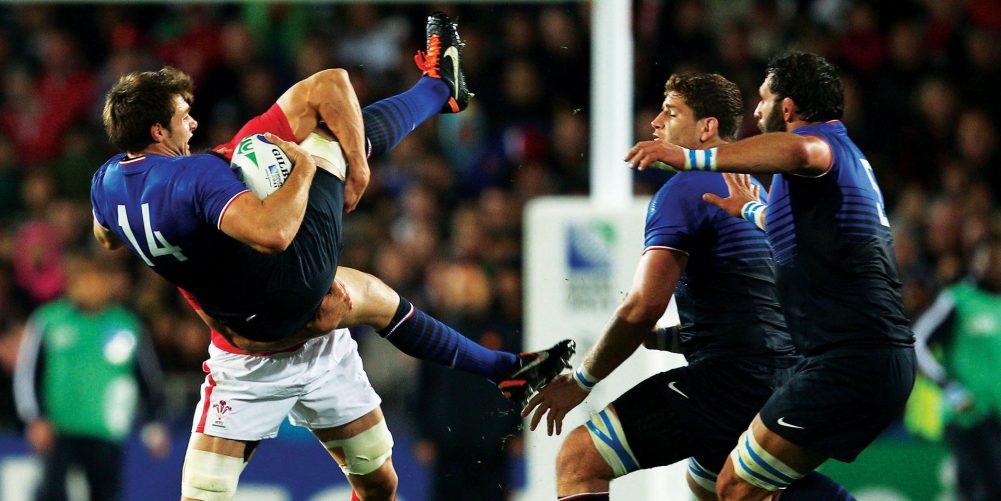Brendan Gallagher delves into some of rugby's most enduring images, their story and why they are still so impactful

Iconic Rugby Pictures: PART 17 Sam Warburton tip tackle and red card at RWC 2011 October 15, 2011
What's happening here?
It's October 15, 2011 at Eden Park, the World Cup semi-final, and Wales skipper Sam Warburton, his head obscured, has just sent France wing Vincent Clerc into orbit with a high impact tackle. Clerc crashes painfully to the ground. The rugby world holds its breath. Yellow or red card?
The story behind the picture?
An exciting young Wales side with head coach Warren Gatland calling the shots and Shaun Edwards yapping at their heels were mounting an impressive World Cup campaign. They narrowly lost a Pool match against South Africa that they should have won but were scoring tries for fun and put away Ireland with some ease in their quarterfinal in Wellington. Next up were a France team that were scarcely talking to their coach Marc Lievremont. They had huffed and puffed their way through their Pool, just scraping through despite losing to Tonga as well as New Zealand.
The French did look a little more accomplished when beating England in their quarterfinal but a rejuvenated Wales were favourites. There was an infectious mood of expectation around the city as Wales supporters arrived and with Wales the only Home Unions team left in the tournament English, Irish and Scottish supporters were swallowing their pride and getting behind them.
What happened next?
It all went horribly wrong for Wales and in particular their popular skipper who didn't have an enemy in the rugby world.
Hard as nails but instinctively a fair player and honourable individual, he set himself up to stop the dangerous Clerc in his tracks. The adrenaline was running, this was the most important day of his life thus far… and he overcooked it.
Warburton wanted to lift Clerc's leg to unbalance him and adopted the Rugby League-style technique that Edwards had been teaching the Wales squad. But the Wales skipper mistimed it slightly and the sheer upforce of his tackle – look at those guns on his left arm! – and the velocity Clerc was travelling at saw the France wing tip up into the air dangerously.
There was just a chance Warburton could have escaped serious censure by bringing Clerc to ground safely but for possibly the only time in his career he was not thinking clearly. He saw an opportunity to go for the ball and released Clerc to make a grab for possession. It was that release that sealed his fate.
I had the binoculars on the incident and the moment Clerc hit the ground it was always going to be red. Within 30 seconds I had written just that on the running match blog I was doing for the Daily Telegraph and within seconds I was inundated by on-line abuse by Welsh fans who, in their shock, couldn't quite compute what had just happened.
There were loads of players around the world game who regularly made iffy or borderline tackles but Warburton wasn't one of them. On the contrary he was probably the best, hardest and fairest tackler in professional rugby.
It was a horrible moment for all concerned but eventually Alain Rolland did what he had to do. The Irish ref had no choice and the picture of a distraught Warburton sitting on the Wales bench fighting back the tears was distressing. Fourteen-man Wales fought like Tigers and were unlucky to lose 9-8. They were the best team on the day… but there was to be no final for them.
Why is it iconic?
Apart from being a cracking action shot of a key moment at RWC2011 which demonstrates Warburton's culpability I would argue this is the tipping point for Sam Warburton's career. Literally.
Such a brutal disappointment could have destroyed lesser individuals, especially as a nervous New Zealand were there for the taking in the final.
Instead it was almost the making of him. When the dust settled Warburton took it on the chin, accepted he was to blame and apologised to Rolland and the French and vowed to be better, to never let that happen again. He would be smarter, more controlled. From now on he would be a winner not a gallant, flawed loser.
It was also an important moment for rugby generally. The rugby authorities went AWOL in New Zealand in 2005 when Tana Umaga and Kevan Mealamu were blatantly allowed to get away with their double tip tackle on Brian O'Driscoll which was a much worse, more cynical incident. The failure to act sent out a horribly mixed message about what was permitted on a rugby pitch. But now, after Rolland's dismissal of the Wales captain there could be no doubt.
Footnote: Proper rugby folk knew that Warburton was the real McCoy and in the heat of battle had simply got it wrong. He was forgiven quickly, and he repaid rugby's faith almost immediately. Four months later he was leading Wales to a Grand Slam in exemplary fashion while in 2013 he produced two of the greatest ever performances by a Lions captain in the opening Tests against Australia. And then in 2017 he led the Lions to a dramatic tied series against New Zealand. When he retired no player was more respected on the world scene, no skipper had a better working relationship with referees.




























Pingback: poppenhuis